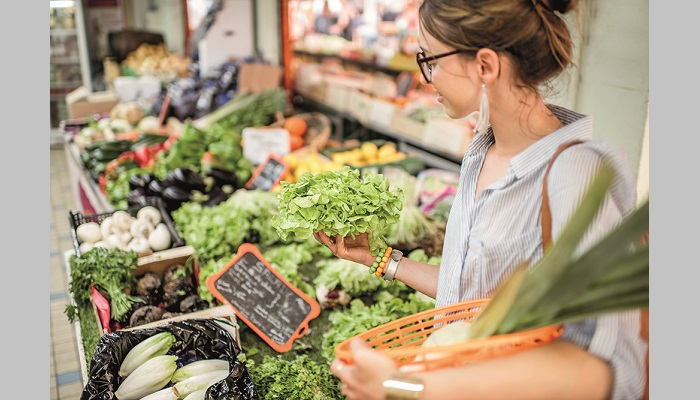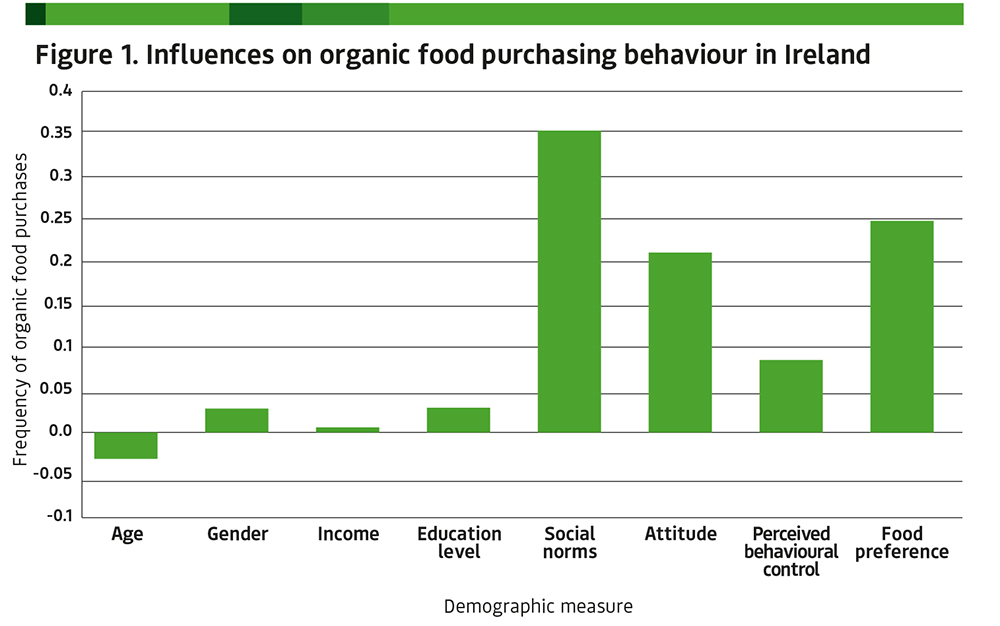03 September 2022
Going organic in Ireland

The EU’s Farm to Fork strategy aims to increase organic food production; knowing why consumers purchase organic foods will be essential if it is to be successful.
Producing food, regardless of type, comes at a cost to the environment, with estimations suggesting it accounts for approximately 30% of total greenhouse gas emissions.
To address this, farmers and food producers may need to reconsider conventional methods of agricultural production in favour of more benign and environmentally friendly methods, without necessarily sacrificing their profits or cutting production volumes. But do methods exist that are both safe for the environment and good for the farmer’s bottom line? Moreover, are consumers in Ireland ready to buy and consume such food?
The rise of organic farming
Organic farming has long been touted as an alternative to conventional agricultural production. While it certainly does not address all the impending challenges of modern agriculture, organic farming offers an alternative system by prohibiting the use of chemical fertilisers. It also markedly restricts the application of other chemicals, such as plant protection in plants and antibiotics in animals. The environmental benefits this brings comes at a cost, however, as productivity may decrease.
Recently, organic farming has received renewed public attention across the EU as a new plan promoting the proliferation and uptake of organically produced food was announced as part of the Green Deal and Farm-to-Fork strategy. This plan envisages a considerable increase for land under organic cultivation (which should rise to 25% of the total agricultural area in just 10 years from today’s average of 8.5%) as well as measures stimulating consumer demand for such food.
For Ireland, this plan represents an even bigger challenge as currently less than 2% of agricultural land is being organically cultivated. Furthermore, little is known about the preferences of Irish consumers for organic food to determine the market for these foods.
A consumer view of organic food purchasing
As part of the Circular Agronomics project, researchers at Teagasc, National University of Ireland, Galway (NUI Galway) and the Centre for Agro-food Economics and Development (CREDA) conducted an exploratory survey on 400 Irish adults in spring 2021, to examine factors relating to sustainable food behaviours, including organic food purchasing.
Analysis of the data (Figure 1) shows that the traditional demographic measures that are usually associated with organic purchasing, such as age, gender, education and income, had little or no impact in this survey. What was found to be most impactful in determining organic food purchasing was positive attitudes to organic food. Consumers who considered organic food to be more tasty, who supported animal welfare and who wanted food grown without chemicals were more likely to purchase organic foods.
Social norms, which describes the impact of friends and significant others on respondents’ consumption decisions, positively influenced the decision to purchase organic foods. The impact of behavioural control, which is consumers’ perceived ability to recognise, find and buy organic foods, was important for purchasing organic foods.
In addition, those who also tended to purchase fair trade foods and foods with sustainable attributes were more likely to purchase organic foods.
Marketing campaigns to increase consumer demand and uptake of organic food purchasing should consider attitudes, social norms and behavioural control rather than focus on the traditional demographic segmentation categories, in order to be effective. Focusing on the impact of social norms on organic food purchasing will serve to increase the uptake of organic food purchasing in others. This in turn will help to form positive attitudes to organic foods that will also increase purchases.
For these measures to work, consumers need to have a sense of control over their purchasing behaviour. Hence, the availability of organic products in-store or at food markets should be highlighted and promoted so that the products are readily available and recognisable to consumers.
These findings can be used to inform policies regarding organic food purchasing, which in turn may encourage the transition to organic farming to meet targets set out in the EU Green Deal.

Figure 1. Influences on organic food purchasing behaviour in Ireland
2%
At present, less than 2% of agricultural land is being organically cultivated in Ireland.
FUNDING
The Circular Agronomics project is
funded from the European Union’s Horizon 2020 research and innovation programme, under grant agreement number 773649.
Contributors
Dmytro Serebrennikov, Teagasc Food Research Centre, Ashtown, Co. Dublin.
Sinéad McCarthy, Teagasc Food Research Centre, Ashtown, Co. Dublin. sinead.mccarthy@teagasc.ie
Fiona Thorne, Teagasc Food Research Centre, Ashtown, Co. Dublin.
Zein Kallas, Centre for Agro-food Economics and Development (CREDA), Spain.
This article featured in the TResearch Autumn 2022 Magazine. TResearch is an official science publication of Teagasc. It aims to disseminate the results of the organisation’s research to a broad audience.
If you liked this article, you might like others in this publication. View TResearch Summer 2022 here (PDF)
